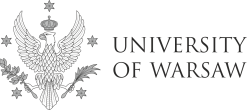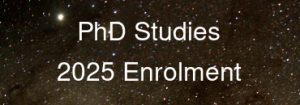University of Warsaw and Heidelberg University Professors Honored with the 2024 Copernicus Award

Professors Andrzej Udalski from the Astronomical Observatory of the University of Warsaw and Joachim Wambsganss from Centre for Astronomy of Heidelberg University have become the laureates of the prestigious 2024 Copernicus Award, granted by the Foundation for Polish Science (FNP) and the Deutsche Forschungsgemeinschaft (DFG), for their groundbreaking contributions to astrophysics through their collaborative research on gravitational microlensing and the discovery of exoplanets.
Decades of Stellar Collaboration
For over two decades, Prof. Udalski and Prof. Wambsganss have spearheaded research efforts aimed at uncovering the mysteries of exoplanets. Their work has revolutionized this field of astronomy, making significant strides in the detection and characterization of planets beyond our solar system.
Their primary research tool, gravitational microlensing, leverages the gravitational field of a star to act as a lens, magnifying the light from a background star. This method allows for the detection of exoplanets that might otherwise remain invisible. This collaboration has not only advanced our understanding of exoplanetary systems but also contributed to the development of new observational strategies and data analysis techniques that have far-reaching implications in the field.
Key Achievements
Among their numerous achievements, Udalski and Wambsganss have published over 60 joint refereed papers, including notable discoveries such as the detection of the then-most Earth-like exoplanet in 2007 and a 2011 paper in Nature demonstrating that nearly every star in the Milky Way hosts at least one planet. Their research has garnered more than 3200 citations, underscoring the impact of their work.
The OGLE (Optical Gravitational Lensing Experiment) project, led by Prof. Udalski, and the complementary theoretical work and high-cadence observations managed by Prof. Wambsganss, have set new standards in exoplanet research. This collaboration has also significantly benefited young scientists, with numerous graduate students and postdoctoral researchers contributing to and learning from this international effort.
Endorsements from the Scientific Community
The nomination of Prof. Udalski and Prof. Wambsganss for the Copernicus Award has been strongly supported by leading figures in the scientific community. Prof. Paul Schechter from MIT highlighted their innovative work and the challenges they have overcome in their research on microlensing and exoplanet detection. Prof. Keith Horne from the University of St. Andrews praised their pioneering efforts and the successful establishment of gravitational lens planet searches as a new and vital field of study.
About the Copernicus Award
The Copernicus Award, presented by the Foundation for Polish Science (FNP) and the Deutsche Forschungsgemeinschaft (DFG), honors researchers who have made exceptional contributions to Polish-German scientific cooperation. The award is named after the renowned astronomer Nicolaus Copernicus, whose work laid the foundations for modern astronomy.
See more: https://www.fnp.org.pl/en/oferta/the-polish-german-scientific-award-copernicus/




